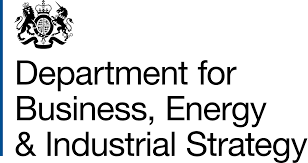The press release issued by the Department for Business, Energy and Industrial Strategy on 30 November 2022.
The Regulatory Horizons Council (RHC) has published 2 independent reports today (30 November 2022) on the regulation of neurotechnology and AI as a medical device, to encourage the safe and rapid development of these 2 key technologies.
The Business Secretary, Grant Shapps, has written to the Regulatory Horizons Council welcoming the reports, saying:
Technological innovation is fundamental to the government’s plans for unlocking growth.
I am committed to growing the UK’s global reputation for regulatory best practice and capitalising our Brexit freedoms. Building on plans outlined in the Innovation Strategy and by the Taskforce on Innovation, Growth and Regulatory Reform, I intend to foster a regulatory approach that will promote innovation, growth and inward investment.
The work of the Regulatory Horizons Council is a key part of modernising our approach to regulatory reform.
Neurotechnology is an umbrella term that includes a wide range of devices that record or alter the activity of the nervous system. This includes promising medical applications that could improve the lives of thousands of people in the UK enduring health conditions such as Parkinson’s, Alzheimer’s, depression, rheumatoid arthritis and cardiac illnesses.
From mind-controlled drones to devices that improve focus and reduce fatigue, emerging applications in the non-medical field could redefine how we interact with one another and leverage the potential of the human brain in unprecedented ways.
The RHC’s new neurotechnology report suggests an interactive taxonomy to guide future conversations on neurotechnology governance and makes 14 regulatory reform recommendations to:
- establish a proportionate regulatory framework that encourages the safe commercialisation of medical neurotechnologies and addresses under-regulation concerns in the non-medical sector; and
- build an anticipatory governance framework to address forward-looking privacy, ethical and security challenges.
Artificial intelligence as a medical device (AIaMD) is another emerging technology with widespread healthcare applications, such as supporting the early detection of cancers, and providing risk estimates of the likelihood a patient will develop a condition such as heart disease.
The safe use of AI in medical devices has the potential to create efficiencies and cost savings in NHS processes through automation of routine tasks, and can detect predictors of disease with greater speed and accuracy than health professionals.
The RHC AIaMD report outlines the challenges and current gaps in the regulation of AI as a medical device and provides recommendations on developing a regulatory framework that balances the needs for effectiveness, safety and equity, with the importance of ensuring that high-quality AIaMD innovations are brought to patients.
The RHC is now undertaking a prioritisation exercise to identify its next programme of work. As part of this, it has accepted BEIS’ commission to undertake a review of the regulation of quantum technologies.
Creating a regulatory environment that promotes innovation and growth of the UK quantum industry will enable the UK to lead the debate in international fora, and ensure that quantum technologies are used for the benefit of UK society – with global productivity gains from quantum anticipated to be worth $100 billion annually within the next few decades.
Requests for more examination (relating to technological innovation), in areas you would like the Regulatory Horizons Council to investigate further, can be made by completing this form.
